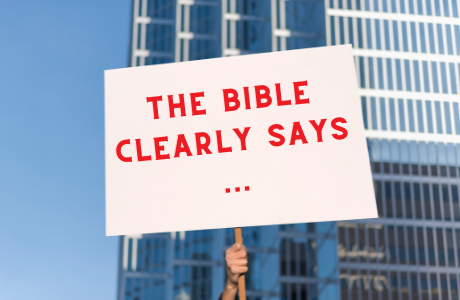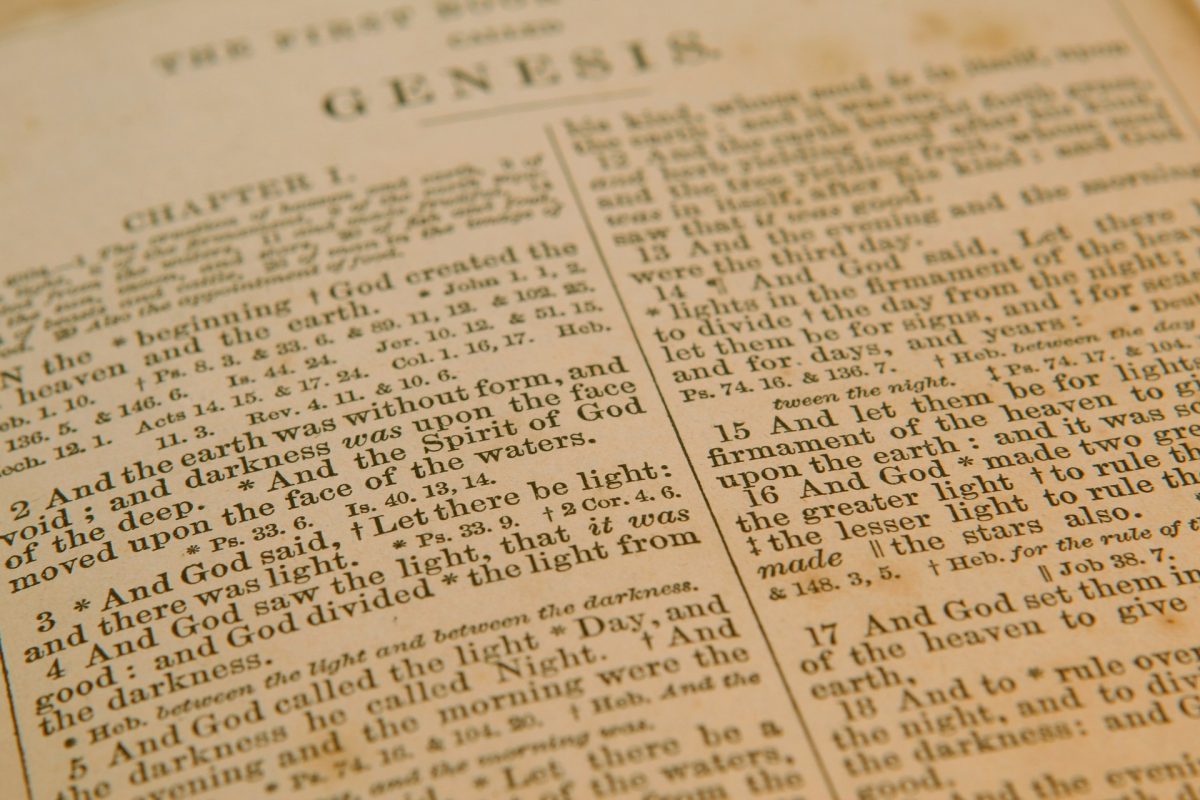Someone recently told me that they felt confused about why God accepted Abel’s offering and not Cain’s. It seemed unfair to them, and I agreed.
We find the story in Genesis 4, and it moves very fast. Adam made love to his wife Eve, and she became pregnant and gave birth to Cain. Later she gave birth to his brother Abel. Abel kept flocks, and Cain worked the soil. Two decades in two verses!
Over time Cain brought some of the fruits of the soil as an offering to the Lord. And Abel also brought an offering from some of the firstborn of his flock. The Lord looked with favour on Abel and his offering, but he did not look with favour on Cain and his offering. So, Cain was outraged, and his face was downcast. God and Cain had a chat about his attitude, during which God told him, “sin is crouching at your door; it desires to have you, but you must rule over it.” That’s a crucial part of this story that I’ll come back to shortly.
So, why did God reject Cain’s offering? Was it because God prefers meat to veggies? Cain was a farmer who tended the ground and grew crops. Abel was a shepherd who kept flocks. It made sense that farmer Cain brought some of the fruits of the soil as an offering to the Lord. It equally made sense that shepherd Abel brought an offering from some of the firstborn of his flock. Both men gave an offering of what they had.
Campfire Stories
There is no mention of teaching on offerings in this story or before. Although God had killed an animal to make clothes for Adam and Eve to cover their nakedness, there is no inference in this story, or before it, that God expected or required an animal offering.
Cain’s gift is the first recorded offering mentioned in the Bible. Should that not tell us something? Remember, this is a campfire story. It’s a metaphor, a parable, as is the case with the first eleven chapters of Genesis. What question around the campfire was asked to prompt this story?
It could have been a child asking a parent why do people kill each other or why is there evil in the world? It’s an ancient dilemma that people still grapple with today: If there’s a loving God, why is there suffering and evil in the world? The ancients would create stories to explore possibilities. The story of Cain and Abel could explore some of the reasons for pain and suffering.
A Question Book
The Bible is a book of questions, not just a book of answers. My Rabbi friend says, “If you read a story that doesn’t raise more questions, you’re not reading the Bible properly.” He says, “The sacred texts are verbs, not endpoints.” Some of the questions we could ask about this story include: How do the principal actors react in the story? What is Cain’s reaction to Abel’s offering being taken above his?
Cain was furious, and his face fell—what an evocative, profound description. You’d have witnessed the fallen face if you’ve ever had to correct a child!
The apparent rejection shatters Cain. God says to Cain (paraphrasing): “how you’re feeling is normal, but if you nurture this resentment and envy, it will be like a tiger crouching at the entrance to your cave.”
God hadn’t turned his back on Cain. God was allowing Cain to learn from disappointment and rejection, something he would repeatedly experience, as we all do.
But instead of learning from the moment, Cain’s ego was bruised. God didn’t invalidate Cain’s feelings. But Cain doesn’t heed God’s advice and has a confrontation with Abel instead. The crouching tiger had not been tamed.
Another Conversation
God: “Where is your brother Abel?”
Cain: “I don’t know. Am I my brother’s keeper?”
The Hebrew here suggests a question like, “Do I stay awake all night keeping an eye on him?”
Cain asks, am I responsible for him? And, if so, where does that responsibility begin and end? It’s an excellent question. Everyone is responsible for others to a point unless it becomes detrimental to you.
God: “What have you done? Listen! Your brother’s blood cries out to me from the ground.”
Remember, this is an allegorical story. Blood doesn’t speak, but that doesn’t detract from the truth here. The New Testament picks up the same metaphor: “Jesus the mediator of a new covenant [whose shed blood on the cross] speaks a better word than the blood of Abel.” (Heb. 12:24).
Abel’s blood spoke of retribution, anger, unrighteousness, and death, whereas Jesus’ blood communicates forgiveness, justice, and life.
The story ends with Cain being disciplined by God and then settling in the land of Nod, [wandering] east of Eden. He gets married and starts a family.
Central Truth
For me, one of the key takeaways from this story is this:
If we lose perspective, something that is temporary can become permanent.
We all have had, or will have, defining moments in our lives.
Cain’s defining moment transpired when God did not look with favour on his offering. Cain became downcast, envious, and angry and then acted out on his emotions.
What if Cain had permitted himself to reflect on his feelings for a few hours? Something unjust had happened to him. He needed to acknowledge his emotions and feelings. We have all been on the receiving end of injustice and experienced emotions that made us feel like lashing out. So, we wait. Meltdowns are inevitable, so be good at them!
An Example
Imagine you didn’t get a promotion at work. You process this:
I deserved that promotion.
I feel angry. Envious. Cheated.
There’s no justice in the world.
These are not evil thoughts. They are valid.
These moments are going to happen.
I won’t deny them; I acknowledge them.
I will chat it through with a friend.
I will bring it to God in prayer.
There are no taboo reflections.
But I won’t let them fester inside me.
They don’t define me.
I don’t have to act on them.
The Heart of the Story
The core of this story is God’s questions and statements to Cain: “Why are you angry? Why is your face downcast? If you do what is right, will you not be accepted? But if you do not do what is right, sin is crouching at your door; it desires to have you, but you must rule over it.” It will become a crouching tiger.
Eventually, the feelings will dissipate. But If you don’t healthily process them, the tiger will pounce. If you handle your disappointments correctly, you will have greater strength to overcome those same temptations in the future. It’s a wonderful ancient story with a practical modern-day message.










